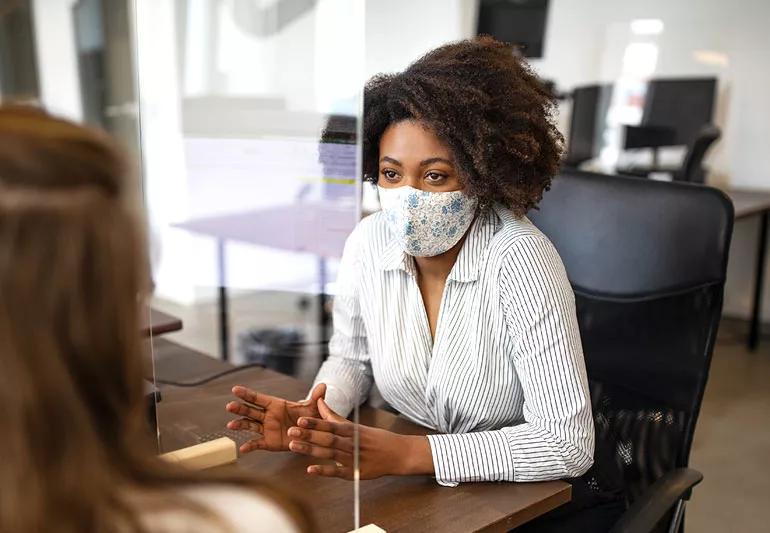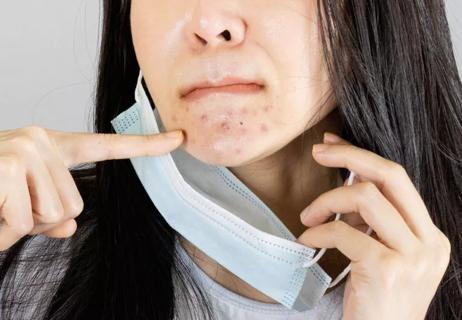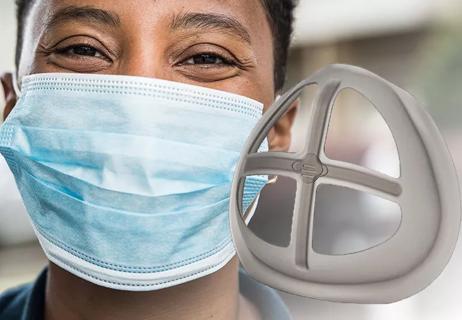No, but find out how you could be making things more uncomfortable

Despite being an effective tool in slowing the spread of COVID-19, face masks can’t seem to catch a break these days. They fog up glasses, they can be uncomfortable to wear and some people just don’t like being told that they must wear one.
Advertisement
Cleveland Clinic is a non-profit academic medical center. Advertising on our site helps support our mission. We do not endorse non-Cleveland Clinic products or services. Policy
But can wearing a mask make you sick? Not in the way that you might think. However, a few common mask mistakes can lead to some annoying circumstances. We’ll get to those shortly. First, let’s clear up a major mask myth.
During the early days of the pandemic, social media scientists claimed that wearing masks would cause us to breathe in too much of the carbon dioxide that we exhale. While we know that inhaling a lot of carbon dioxide is dangerous, it’s not possible to do so while wearing a cloth or disposable face mask.
However, keep in mind that masks can be dangerous for those who are unable to remove them on their own. Children under 2 years of age, people living with breathing conditions or those who are unable to remove a mask without assistance shouldn’t wear one.
The CDC also says if a mask would impose risk to a person’s workplace health, safety or job duties as determined by the Occupational Safety and Health Administration’s (OSHA) workplace risk assessment, they’re exempt from the requirement to wear a mask.
It’s easy to find reasons to justify not wearing a mask when you don’t want to put one on. Despite the opposition, one thing is clear: Wearing a mask won’t put your life in danger. However, you might have to contend with a few aggravating things if you’re not careful.
Advertisement
No, you won’t get a sore throat as soon as you put on a mask. Now, if you’ve been wearing the same mask — for days — it’s possible.
Family medicine physician Neha Vyas, MD, says that a number of things can cause sore throats.
“Sore throats can be caused by viruses, bacteria or environmental irritants. They could also be caused by vocal strain (using your voice too much), dry air, or a condition called gastroesophageal reflux, or GERD.”
While anyone can experience sore throats, people with weakened immune systems, those with allergies and those who use their voices often may be especially prone to them.
Dr. Vyas says that viruses or germs residing in unwashed or unclean masks can possibly cause sore throats. If you’re wearing that mask that’s been in the car for weeks, stop. When you wear a dirty mask over and over again, you end up breathing in bacteria or viruses that might be trapped in the mask. That’s why you should toss cloth masks in the wash after every use.
“Try to limit the number of times that you touch or remove your mask,” says Dr. Vyas. And when we do need to remove our masks, she urges us to make sure that our hands are clean when we take them off or put them on.
“Mask wearers often have to speak louder for others to hear. This may cause vocal strain,” says Dr. Vyas.
When it comes to talking while wearing a mask, louder isn’t better. Instead of yelling, raise your voice slightly. Then, speak slowly and clearly. And don’t forget to enunciate the beginnings and endings of words since masks tend to muffle everything. Doing this will help you save your voice.
Masks trap in a lot of hot air when we breathe or talk. They also create a warm, humid environment which is an ideal setting for yeast, bacteria and other flora, such as demodex (types of skin mites that naturally live on our skin), to grow. Bacterial imbalances and friction from masks can promote acne, trigger rosacea flare-ups and cause fine pimples and pustules to appear around the nose and mouth. So if you’ve been wondering why you’ve been experiencing more breakouts, here’s your answer.
For people who live with anxiety disorders or claustrophobia, it can. Some might experience psychological responses to wearing a mask while others may experience physical symptoms like shortness of breath, tightness in the chest, sweating or a rapid heart rate.
There are things that people can do to manage mask anxiety.
Advertisement
To reduce the chances of getting a sore throat because of a dirty mask, here are some helpful mask cleaning tips from the CDC.
You can wash your mask with the rest of your laundry. Use regular laundry detergent and the warmest appropriate water setting for the cloth used to make the mask. If you have sensitive skin, use a mild detergent.
This requires a few extra steps:
Before you start, check the label to see if your bleach is intended for disinfection. Some bleach products, such as those designed for safe use on colored clothing, may not be suitable for disinfection.
Make sure you’re in a well-ventilated area.
Advertisement
Yes, a lot of the conditions that were covered can be frustrating to live with or manage. But they’re nowhere near as bad as contracting or spreading COVID-19 to our loved ones, friends or neighbors.
“While wearing a mask might be perceived to be a hassle by some people, it’s important to continue to do so to prevent the spread of COVID-19 and other germs,” says, Dr. Vyas.
Advertisement

Sign up for our Health Essentials emails for expert guidance on nutrition, fitness, sleep, skin care and more.
Learn more about our editorial process.
Advertisement

Masking can help reduce the spread of respiratory illnesses in certain situations

Here's what you can do to help prevent it

They’re a hot seller, but a proper fit is critical

How to choose your mask wisely + keep it clean

Fancy and unusual ingredients aren’t always better

Chilblain-like skin lesions and rashes are mild (and rare) complications of many viral infections, not just COVID-19

Yes, but symptoms can be easy to miss

‘Walking pneumonia’ is milder and doesn’t always require medication — but it’s also highly contagious

Even small moments of time outdoors can help reduce stress, boost mood and restore a sense of calm

A correct prescription helps your eyes see clearly — but as natural changes occur, you may need stronger or different eyeglasses

Both are medical emergencies, but they are very distinct events with different causes